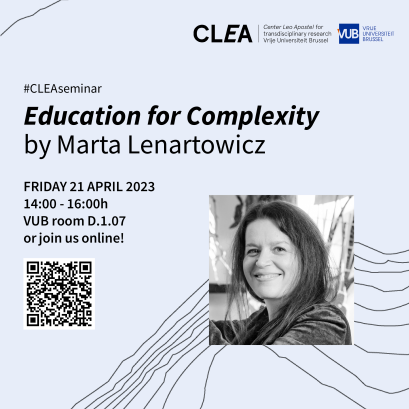Context is everything. The same activity, however enriching it might feel, can turn detestable once its externalities and consequences are honestly examined. Conversely, a tedious and mundane task can become exhilarating if viewed as serving a grand purpose. No action, idea, or pursuit in the world is standalone and self-contained. Everything has aggregating, non-local, long-term reverberations and a non-erasable durée. Humanity, having become immensely powerful, has long passed the stage in which being a generalist, big-picture, multi-level thinker could be considered merely a cognitive style or an individual’s advantage. Today, it should be considered a moral duty. This duty, however, is admittedly challenging - not only for individuals, but for the entire system of education. The challenge lies in the fact that adequately contextualising and nuancing our actions, understandings, ideas, and speech requires vast knowledge, plenty of experience, and the ability to apply a plethora of insights stemming from fields as diverse as ecology, psychology, philosophy, history, politics, sociology, economics, and technology, among others. In this seminar, Marta Lenartowicz addresses the question of when and how such capabilities might be systematically developed within the trajectory of human life.
The long-standing practice of higher education makes it apparent that training in a particular intellectual culture is a process that requires several years: the five-year trajectory towards a Master’s degree cannot really be shortened if we want to train a competent philosopher, biologist, mathematician, etc. Training an interdisciplinary generalist takes at least as long, but dedicating the five years of university education to this purpose might not necessarily align well with the demands people experience in their early adulthood when they need to establish a profession. However, the earlier 6-year cycle of secondary education, which actually aims to provide a multidisciplinary, holistic development, appears to be a perfect window of time for learning to see, understand, and interact with reality as an interconnected, multidimensional whole. The period of coming of age has a powerful archetypal function of a gate into adulthood: this is when reality, on its terms and with all its profound beauty and serious demands, should be met, reckoned with, and appreciated. Simultaneously, the secondary cycle of education has seen the least pedagogical innovation in the last decades and is notorious for its shortcomings when it comes to inspiring young learners who already are generalists spontaneously. This calls for a fresh design.
Marta Lenartowicz proposes transforming the period of middle years and high school education into a radically redesigned systematic training for citizens of the noosphere: a comprehensive, intercultural, experiential orientation period for the youngest crew on Spaceship Earth. As our cognition is shaped more by lived experiences than by what we are being told, the proposed reorganisations are mostly structural, methodical, and cultural, whereby the most impactful formation happens implicitly. The seminar details several practical reorganisations that Lenartowicz plans to implement at Buckminster College, aiming to equip young learners for individuation and thriving in a complex, uncertain, open-ended world.
About the speaker
Dr. Marta Lenartowicz holds a PhD in humanistic management, with backgrounds in social epistemology, theory of language, and educational leadership. In addition to serving as the director of education she is currently involved in four CLEA 's projects: the Human Energy Project, the Origin of Goal-Directedness, the School of Thinking, and the Education for Complexity research group. At the newly started educational spinoff initiative affiliated with CLEA, Buckminster College, she serves as the Principal, envisioning learning trajectories suitable for fast and demanding learners (ages 10-18). In her work Marta seeks to advance the conceptual underpinnings that govern the evolution of intelligence in human cognitive systems at multiple scales. She is interested in theoretical approaches to the evolution of intelligence, cognitive development, distributed cognition, and collective intelligence.
Practical
The CLEA seminars are taking place simultaneously at the VUB campus in Etterbeek, Brussels, and online (via Zoom) and are open to everyone interested!
When. Friday April 21, 2023 from 14:00 until 16:00h
Where. VUB campus Etterbeek, room D.1.07.
Online. You can follow the seminar online via Zoom. You may need a Meeting ID and passcode to enter.
Zoom link: https://us06web.zoom.us/j/82757798426?pwd=em9sQlJDVjJYTEFRNk01dEJLWGxGUT09 Meeting ID: 827 5779 8426Passcode: 122127
Video of the seminar

